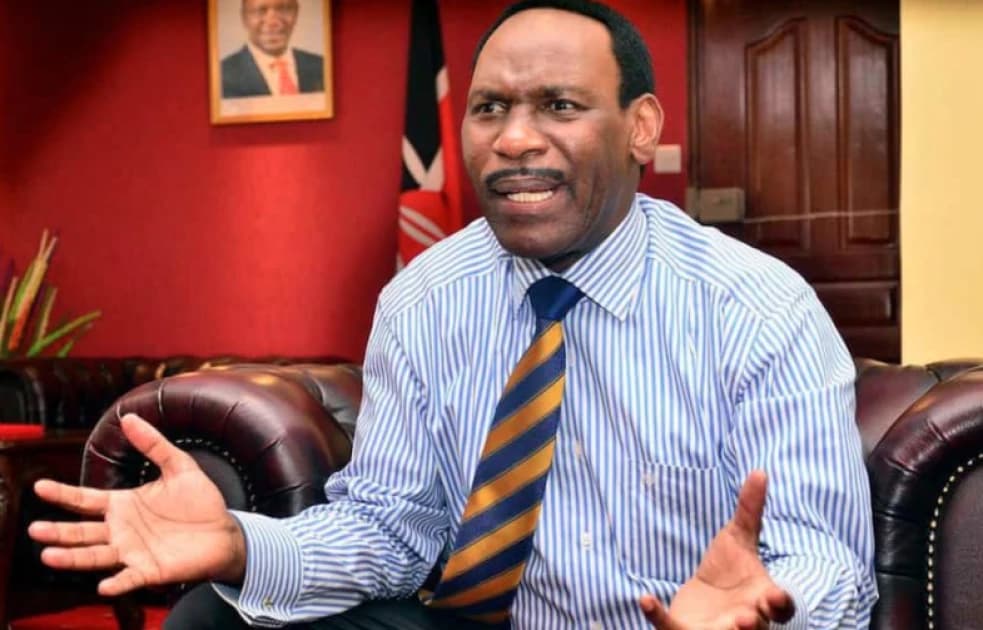We're loading the full news article for you. This includes the article content, images, author information, and related articles.
The former film board CEO is locked in a legal battle with the anti-graft commission over alleged irregular salary and allowance hikes, a case that puts public sector wage rules and board oversight under intense scrutiny in Kenya.

Former Kenya Film Classification Board (KFCB) Chief Executive Officer, Ezekiel Mutua, is currently embroiled in a High Court battle to retain Sh22.7 million that the Ethics and Anti-Corruption Commission (EACC) claims he acquired through irregular and unlawful salary increments and allowances during his tenure. The case, which came up for mention this week with a hearing set for 2026, highlights ongoing concerns about governance and adherence to public finance regulations within Kenya's state corporations.
The EACC filed the recovery lawsuit in 2024, alleging that Mr. Mutua’s monthly salary was illegally increased to Sh1.1 million in 2019. This figure starkly contrasts with the Sh480,000 cap set for the position by the Salaries and Remuneration Commission (SRC), the constitutional body mandated to regulate public servant pay. The anti-graft agency also accuses Mr. Mutua of unlawfully drawing a monthly entertainment allowance of Sh100,000 from 2016 until his departure from KFCB in 2021.
In his defense, Mr. Mutua has denied any wrongdoing, asserting that the remuneration was performance-based and duly approved by the KFCB board. “All salaries awarded to him were done by the Board after having considered his good performance and work, and he justly earned his remuneration,” his lawyers stated in court documents. He maintains that the board sought to reward him for increasing the board's collections and public presence.
This High Court case follows a significant ruling in July 2025 by the State Corporations Appeal Tribunal, which declared a Sh27.6 million pay rise awarded to Mr. Mutua as irregular and unlawful. The tribunal upheld a surcharge issued by the Inspector General of State Corporations, ordering Mr. Mutua to refund the sum. The tribunal found that the KFCB board’s decision to raise his monthly salary from Sh348,840 to Sh1,115,850 was made without the mandatory approvals from the SRC and the relevant Cabinet Secretary, rendering the increment a breach of constitutional and statutory provisions.
According to tribunal records, the KFCB board renewed Mr. Mutua's contract on June 7, 2018, against the express direction of the then-Cabinet Secretary for Sports and Heritage, who had indicated on May 29, 2018, that the government did not intend to renew his contract. Following this controversial renewal, the board proceeded to approve the salary hike in a meeting on January 31, 2019, despite the board's own human resource committee advising that further consultations were needed. A subsequent letter from the Cabinet Secretary on April 30, 2019, explicitly declined to approve the salary increase and directed the board to recover any amounts already paid, a directive that was apparently ignored.
The EACC lawsuit implicates not only Mr. Mutua but also 12 former KFCB board members who approved the contentious pay rise, accusing them of colluding to confer a benefit from public funds. The commission argues that in failing to prevent the loss of public funds, the board members abused their office. The tribunal's ruling also upheld a surcharge of Sh2.8 million against a former board member, Nehemiah Kipkoech, for his role in the approval process.
Mr. Mutua, often dubbed the 'moral police' during his contentious time at KFCB, served as CEO from October 2015 to August 2021, when he was sent on compulsory leave before his contract was terminated. Seven months later, in March 2022, he was appointed CEO of the Music Copyright Society of Kenya (MCSK). His tenure there also ended amidst controversy, with the MCSK board confirming his dismissal effective April 3, 2025.
This case underscores the critical role of the SRC in ensuring equity and fiscal sustainability in public service compensation. It also serves as a significant test for Kenya's anti-corruption bodies in holding high-ranking officials and board members accountable for decisions that lead to the loss of public funds. The outcome of the High Court recovery suit will be closely watched, setting a potential precedent for future cases involving remuneration disputes in the country's extensive state corporations sector.
Keep the conversation in one place—threads here stay linked to the story and in the forums.
Sign in to start a discussion
Start a conversation about this story and keep it linked here.
Other hot threads
E-sports and Gaming Community in Kenya
Active 9 months ago
The Role of Technology in Modern Agriculture (AgriTech)
Active 9 months ago
Popular Recreational Activities Across Counties
Active 9 months ago
Investing in Youth Sports Development Programs
Active 9 months ago